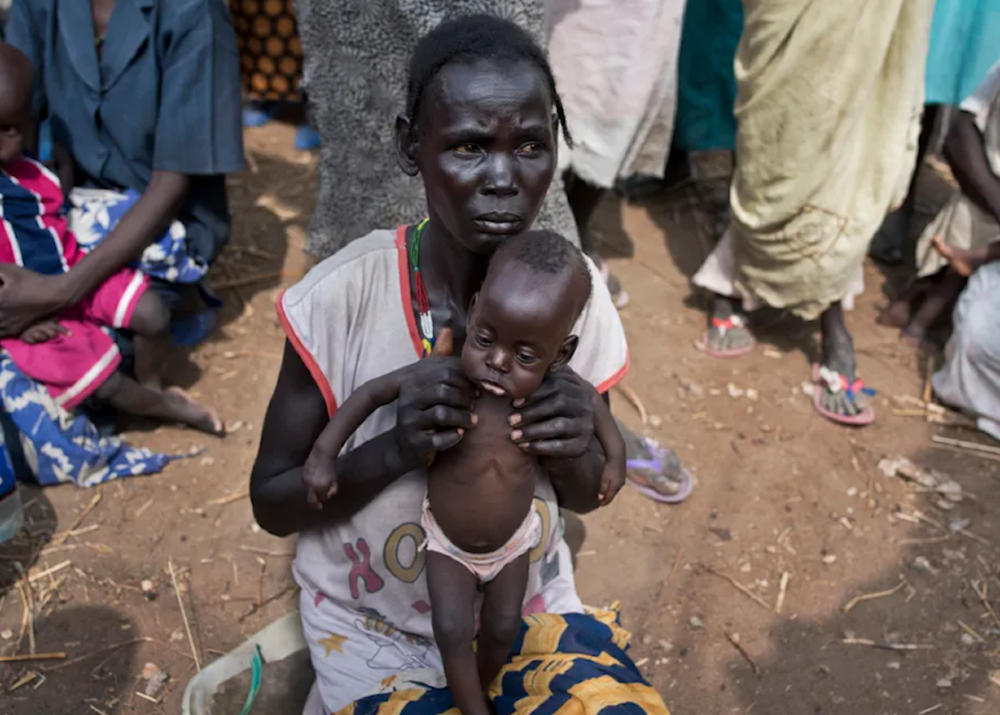South Sudan clashes block aid to 60,000 malnourished children
WFP and UNICEF warn nutrition supplies in South Sudan’s Upper Nile State, one of the hardest-hit by malnutrition, could run out by the end of May.
-

Abuk Garang holds her 7-month-old son William Deng, as she and others walk to a food distribution site in Malualkuel in the Northern Bahr el Ghazal region of South Sudan on April 5, 2017. (AP)
Fighting along the Nile River in South Sudan has stopped humanitarian supplies from reaching more than 60,000 hungry children in the country's northeast for over a month, two UN organizations reported on Thursday.
The World Food Programme (WFP) and the United Nations Children's Fund (UNICEF) expect nutrition supplies in Upper Nile State, which has some of the highest rates of malnutrition in the country, to run out by the end of May.
"Children are already the first to suffer during emergencies. If we can't get nutrition supplies through, we are likely to see escalating malnutrition in areas already at breaking point," Mary-Ellen McGroarty, WFP's representative in South Sudan, said in a joint statement with UNICEF.
The Nile is an important transportation route in South Sudan since the impoverished country has few paved roads and a lot of difficult terrain, especially during the wet season when many roads become inaccessible.
The organizations did not specify whose combat had hindered their assistance barges' journey, but government forces have been fighting an ethnic Nuer group known as the White Army near the Nile since March.
Lifeline cut off for malnourish children in Upper Nile
The fighting resulted in the arrest of First Vice President Riek Machar and a spiraling political crisis, which the United Nations warns might rekindle the horrific civil war that ended in 2018.
In mid-April, barges carrying 1,000 metric tons of food and nutrition supplies heading for Upper Nile State were forced to withdraw owing to security concerns, according to WFP and UNICEF.
According to the organizations, pre-positioning commodities in health centers and warehouses in unsafe locations would have made them targets for looting.
"We have reluctantly taken the unprecedented step of holding back supplies for fear that they will not reach the children that so desperately need them, due to the ongoing fighting, looting and disruption of the river route," stated Obia Achieng, UNICEF's representative.

 2 Min Read
2 Min Read








